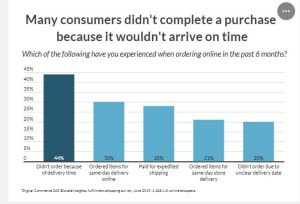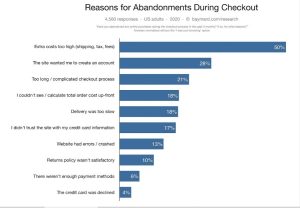
Share
What Pandemic? In Spite of 2020, Holiday Season E-Commerce Delivers
It’s 2021. Can you believe it? No, seriously, we’re done with that year. The year where everything stopped. Then restarted. Then kind of stopped again.
But one thing that didn’t stop was e-commerce, which carried the day for economies worldwide.
I’m sure by now, you have heard about the power of e-commerce and how it supported us all in a pandemic, but now the dust has finally settled. We can take a look back at one of the biggest Q4s in our history as an affiliate marketing agency but also for all sorts of brands who still have great products to sell.
Digital marketing and specifically affiliate marketing came up huge this past Q4, which of course covers the holidays and signifies a time period brands hone in on to reach their sales goals.
According to Sr. Manager of Business Development Manny S, “Simply put, Q4 was a massive success for Advertise Purple as hundreds of millions of consumers played it safe and shopped from the comfort of their own home this holiday season.”
So, how and why did it go so well?
A year of adapting
As we covered extensively towards the end of last year (feels good to say that), Black Friday and Cyber Monday looked quite a bit different this year. Due to COVID-19, there was a 50% decrease in foot traffic at malls and retail stores.
Black Friday the day mattered less, while the time period and e-commerce deals mattered decidedly much more.
What did this mean for brands? It meant to survive, it was key to develop robust marketing programs. As we focus in and around affiliate, what we can say is that the majority of our clients’ programs saw a boost, as they have during this entire pandemic period.
So, let’s take a quick look at lessons learned from this period about what didn’t work and what did.
Key takeaways from survey of online customers
Of course, with exploding timelines like December 25 for Christmas and December 31 for New Year’s Eve, delivery times meant more during this holiday season. Even with a bit of drama around the supply chain, USPS, etc, we didn’t see a disastrous scenario with our infrastructure.
This is a huge win. There’s no way e-commerce works if the goods don’t make it to the end-customer on time. So, thankfully, we have an unbelievable workforce and the years of building out this system that works incredibly well have clearly paid off.
What caused cart abandonment and stopped people from completing that final step of checking out?
Thanks to the Baymard Institute for this analysis.
Here’s a breakdown of what they were able to find:
- The average shopping cart abandonment rate is around 68.8%.
- Around 50% of participants said that the number one reason for abandonment during check out is the high costs.
- Online shoppers are more likely to abandon their shopping cart if businesses require them to make an account.
- Around 21% of online shoppers decided to abandon their shopping cart because the process was too complicated.
- E-commerce websites can see an increase of 35.26% in conversion rate if they have good checkout design.
- E-commerce websites that load slowly see shopping cart abandonment of 75%.
In conclusion, there are still ways to optimize the online shopping experience, but we’re doing a pretty good job. The trends that were already in place leading into 2020 were exacerbated by this troubling year.
Imagine if the supply chain wasn’t able to keep up with the massive amount of additional orders. Or if brands weren’t able to adapt as easily and seamlessly as they did to mobile and online sales?
Luckily, we don’t have to answer those questions. It really is kind of remarkable how e-commerce stepped up when we needed it most in 2020.
In 2021, around the holidays, I’m hopeful for stores to be back up and running. And while our economy might not be as reliant on e-commerce, now we know that it’s battle tested.
Working with the affiliate channel, we at Advertise Purple can help you get your share of this growing boom. If interested in developing an affiliate program (or partnering in some other way), please reach out at [email protected]







